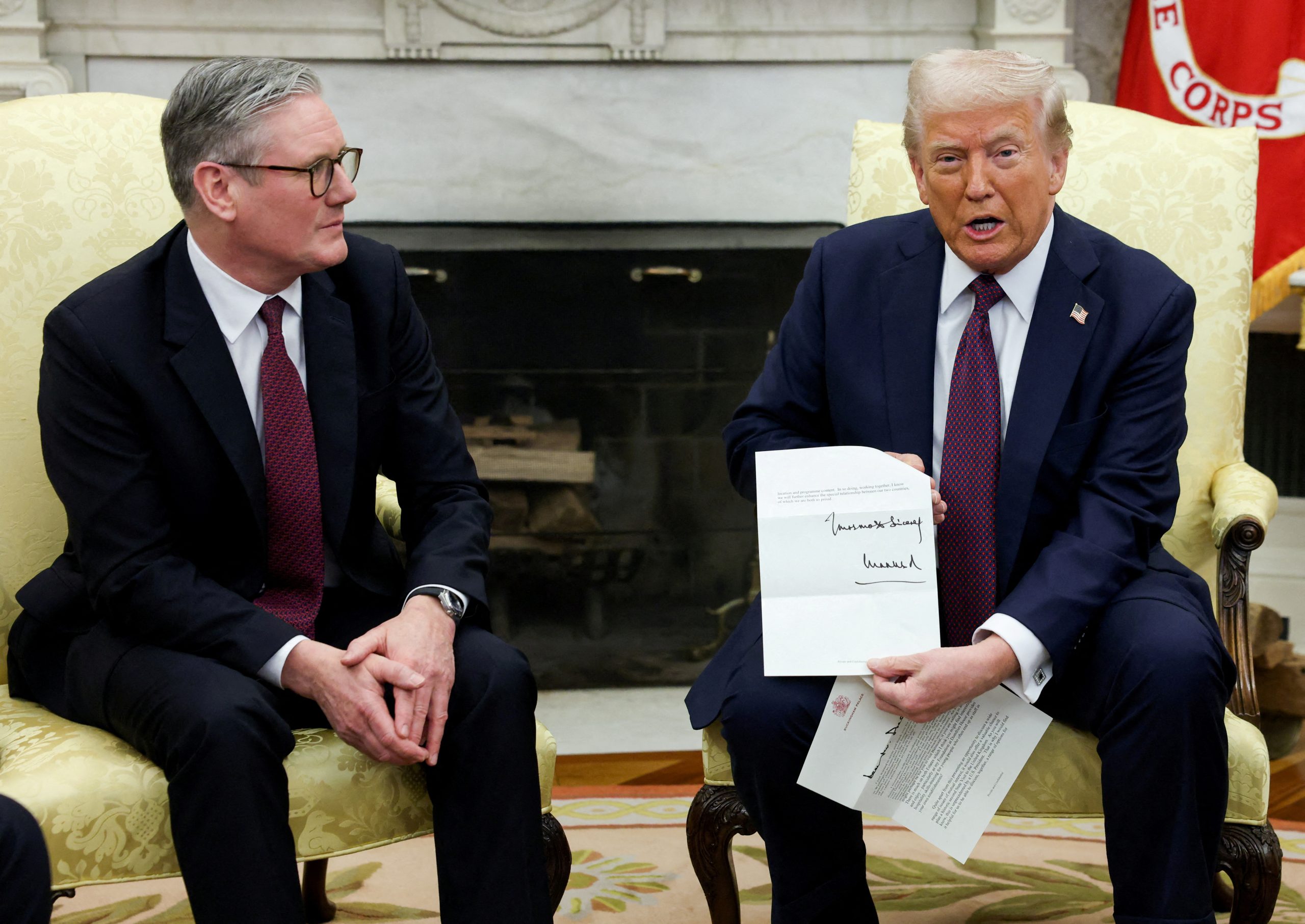- Monday, June 23, 2025
The trade deal will reduce tariffs on British cars and steel, but a 10 per cent baseline levy on British goods will remain

By: India Weekly
US PRESIDENT Donald Trump unveiled a trade agreement with Britain on Thursday (8), the first deal after a tariff war that has rattled the world.
Speaking by telephone from the Oval Office to British prime minister Keir Starmer, Trump said the deal would be the first of many with other countries.
The deal will reduce tariffs on British cars and steel, but a 10 per cent baseline levy on British goods will remain.
Britain will in return open up markets to US beef and farm products despite consumer concerns over their quality.
The trade deal slashes export tariffs for British cars from 27.5 percent to 10 percent, Britain said.
Both sides said there would be further negotiations on a fuller deal, but Trump denied overselling the agreement.
The deal follows a charm offensive by Starmer, who came to the White House in February armed with an invitation from King Charles III for a historic second state visit for Trump.
‘Further negotiations’
A UK government official likened the deal to a “general terms document” which will set out agreements but also lay out a framework where further discussions are needed.
The deal was focused on specific sectors rather than being a fully-fledged free trade agreement sought by the UK following its 2020 departure from the European Union, the official said on condition of anonymity.
As well as dealing with steel and car tariffs, it would lay out positions for discussions over possible future tariffs in the key pharmaceuticals sector.
“There will be further negotiations to come,” the source added.
A US deal is a fresh win for Starmer after Britain this week struck a free-trade agreement with India, its biggest such deal since leaving the European Union.
Trump described the British leader, who like the US president won power last year, as a tough negotiator following the latter’s visit to Washington in February.
The president slapped 10 percent tariffs on imports from around the world in April, including Britain, but he temporarily froze higher duties on dozens of nations to allow for negotiations.
The film industry – a main UK export for the services sector – is also in Trump’s sights.
London, however, has not yet retaliated against Trump’s tariffs.
London had been keen to achieve some type of accord with Washington ahead of an EU-UK summit on May 19 due to reset ties with the 27-nation bloc.
The EU is struggling to reach its own trade deal with the United States.
Brussels on Thursday proposed hitting US planes and cars with tariffs if talks fail.
Trump’s trade war has shaken up financial markets and raised fears of a recession, with central bankers and business executives wrestling with often chaotic policymaking that is hitting world supply chains and a whole host of industries.
The International Monetary Fund last month slashed its growth forecasts for the United States, China and most countries, citing the impact of US tariffs and warning that rising trade tensions would further slow growth.
Governments from around the world have been scrambling to strike deals with Washington before the new deadline passes.
US and Chinese officials are also preparing to hold talks in Switzerland on Saturday, which could mark the first step in resolving a potentially damaging trade war between the world’s top two economies.
Trump’s top officials have engaged in a flurry of meetings with trading partners since the president on April 2 imposed the broad 10 per cent tariff, along with higher “reciprocal” tariff rates for many trading partners, though those rates were later suspended for 90 days.
Washington is close to agreeing on trade deals with India and Israel, according to reports.
The administration is also continuing talks with several other countries, including Japan, South Korea, and Vietnam. (Agencies)